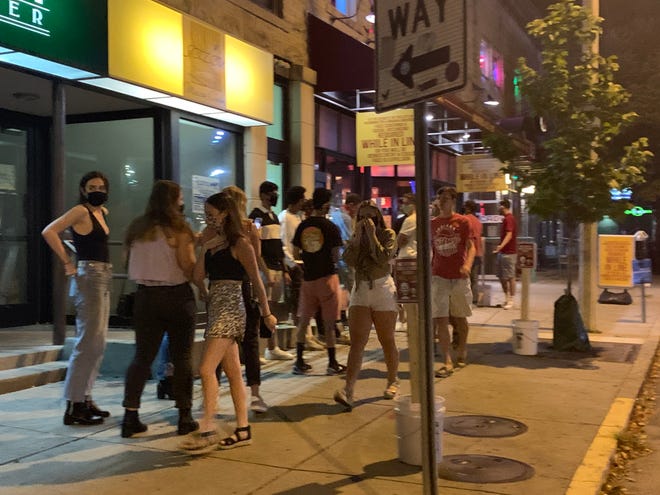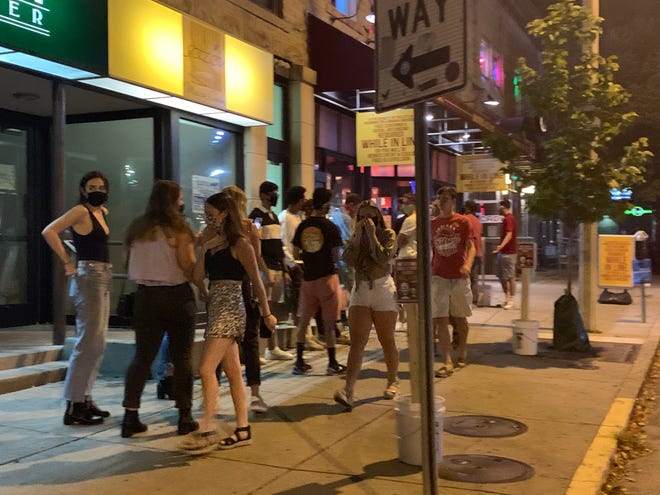A dozen mayors wrote to Big Ten officials last fall. Football was returning to their communities, and they wanted help.
“We humbly request,” the mayors wrote, “a few practical measures that the Big Ten Conference can take to ensure we have the tools we need to combat the spread of COVID-19.”
A humble request. The words are telling: about where power lies, and where it doesn’t. And about where the leaders of these Big Ten college towns — often dwarfed in size and in influence by their university neighbors — fit into the conversation. Which is to say, often on the side.
“Kill ‘em with kindness” is how Aaron Stephens explains the letter’s tone. He’s the mayor of East Lansing, home of Michigan State University. He didn’t really have to push many of his fellow mayors to sign the letter, he says.
After all, the requests weren’t that crazy. In the middle of a pandemic, the mayors wanted the Big Ten to make decisions about games based on rates of COVID-19 in the community, not just the teams. And they sought few or no night games, to cut down on parties and drinking.

The mayors never got a meeting. Big Ten planning, Stephens says, was well underway by the time they sent their requests.
Still, Stephens sees the letter as an opening. Maybe now there will be a thought that hasn’t been there before, he says. Some conference official, amid making the next decision, might say: Maybe we should reach out to these cities.
And that humble wording? “We want to…



























































